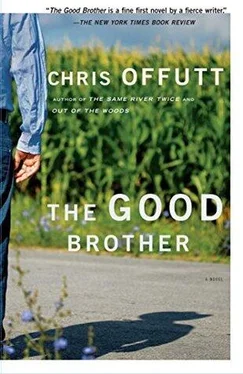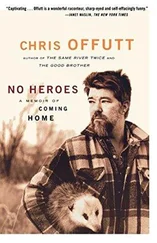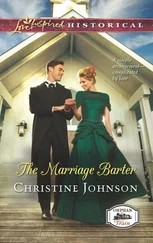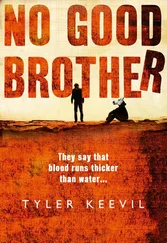The trees were black against the snow, becoming pale shades of gray farther up the mountain. Clouds opened in cracks that striped the slopes with sunlight, filling the valley with a liquid shine. Sight-lines spread in all directions and snowflakes fell to the ground as if towed by thread. Joe wondered how scientists knew there were no two alike.
Inside his cabin he built a fire and cleaned the mess. It seemed as if someone else had wrecked the place a long time ago. He’d come to Montana to cut himself off from people, but that was impossible for him. He was a small-town person who’d been happiest at work. Ty was right, he had to get through winter. He had food, shelter, and a sleeping bag. When spring arrived, he needed to find a job and a community.
He patted the possum on the head. He decided to bury it at the first thaw.
In March the winter began easing away. Icicles clinging to the slopes ran their water over rock. At night they formed again, making the cliffs appear to bear long talons. Frosty ground thawed to mud. Snowmelt flowed down the mountains to fill Rock Creek. Joe used the old shovel to clear a path to his Jeep.
Montana had none of the pastel budding of eastern woods, no brilliant slashes of forsythia or blossoming fruit trees. Instead there was a quickening to the air, the stirring of life. An enormous energy soared among the mountains. The land appeared fuller, as if each tree held a slight swelling. When the first rain came Joe stood on his porch inhaling deeply, craving the moist air in his lungs. Water encased each surface with a bright prism, transforming the bleakness of winter into living earth. Snow had left the woods.
In April the ice went out of Rock Creek in great crashes that echoed through the valley. Floating chunks scraped the bank, and the stream ran with quiet ferocity. A layer of light lay over the land. Joe slipped the.32 in his jacket pocket, loaded the stuffed possum into his Wagoneer, and threw the old shovel in the back. Its broken handle had been repaired with short nails and frayed tape.
He drove several miles south on the dirt road, turned right, and began climbing Skalkaho Pass. He parked at a wide spot. The air was cold and fresh. He carried the possum and shovel into the woods. The deer trails still held ice, frozen arcs that veered through the woods, bearing the delicate imprint of tracks. Boulders were covered with a velour of moss.
The woods were quiet, as if the animals had fled before his approach. Pine boughs brushed him. He held the possum under his arm and descended to a shallow basin of pink mountain heath that was surrounded by rock bluffs. He moved through a chamber of light and stone, and climbed to a narrow ridge that held no trees. The spot was ideal. He began to dig. The loose soil kept sliding back into the hole. He hit rock just below the surface and realized that there was not enough topsoil for his plan. He placed the stuffed possum in the hole but its head and back protruded above the ground.
He pried large rocks from the earth and stacked them around the possum. The shovel handle broke free of the blade. He ranged farther along the ridge, gathering rocks and mounding them until he had a cairn. When the possum was completely covered, Joe rested. He pulled a nail from the splintered end of the shovel handle, held the blade in his lap, and stared at the blank metal. He wanted to write everything, but it was a mistake to write his name. He scratched his initials into the old metal. He worked the nail back and forth until the letters were etched deep — V.C.
He placed the shovel blade on top of the cairn and sat crosslegged before it. He was beyond praying, although he wished he wasn’t. He spoke for the first time in several days. “Good-bye, Virgil, Now you got a grave and I got somewhere to come to.”
He felt as if he should say more, but he couldn’t think of anything. He lay on his back and stared at the sky. Heaven was up there. It was very blue. His fingers ached from labor. He closed his eyes.
He awoke chilly, the mound of rock before him like a shrine. He rose and walked away, carrying the shovel handle over his shoulder. As he descended the ridge, he smelled sage, a scent that had become familiar. He recognized the contour of the mountain range across the canyon. A speck in the sky became a hawk. He reached the bottom of the slope, where the land opened into a basin of buffalo grass and duckweed. The cry of a bird carried through the air, and he stopped moving to listen. He couldn’t name the bird, but he knew its cry. It was a Montana sound, as was the rustle of pine needles in the wind behind him. He began crossing a meadow of budding heath. A coyote ran straight away from him, its tail streaming like a banner, and he wondered if it was the same one he’d tracked in winter. There was a sharp crack and his left leg went out from under him.
He was lying on his back, but it seemed impossible that he could fall from a standing position. His leg began to hurt and he touched it and found blood. He figured he’d walked into a bear trap. The pain grew, occupying his entire consciousness, and when it receded he understood that he’d gotten himself into a bad spot. Night would soon arrive. He knew he could not walk.
Brush scuffed behind him. “You stay lay there,” a voice said. “Well just wait, you son of a bitch.”
Joe didn’t move. He wondered how crazy the man was, and what he was waiting for. The weight of the little.32 towed Joe’s jacket pocket to the side and he hoped the man didn’t notice. Grass pricked the back of his neck. It felt rougher than grass at home, but he banished that thought; he was home. This was where he lived. Now this was where he’d die.
Clouds moved like tumbleweeds across the sky. He flexed his leg muscle and the pain raced through him like electricity. He closed his eyes. Hurried bootsteps pounded the earth. A man knelt beside him.
“You bad hurt?”
“Leg,” Joe said.
Two more men stepped into view. Joe recognized Owen from the tavern, Coop’s grandson. Beside him, with an expression of triumph on his face, stood Owen’s brother Johnny. He wore camouflage and held a small pistol, Joe couldn’t believe that in a state this big, he’d been shot by someone he’d met.
“I’m going to lift your leg,” the stranger said to Joe. “It might hurt, but I have to see where the bullet came out,”
The man probed the wound and a jolt of pain ran from Joe’s leg to his brain.
“We’re fucked twice and lucky once,” the man said. “Once by Johnny shooting him, and second by no exit wound. Bullet’s still in his leg.”
“What’s the lucky part?” Owen said, “Missed the artery.”
“Knocked him down with one shot,” Johnny said.
“You shouldn’t have shot him,” the man said.
“I thought he had a rifle, Frank.”
“Great,” Owen said. “You used his name.”
“It’s not a rifle,” Frank said. “It’s a fucking tool handle.”
“He’s probably a Fed.” Johnny said.
“That’s even more reason not to shoot him,” Frank said.
“Listen, Johnny,” Owen said. “You can’t just go around shooting people on account of who you think they are.”
“You don’t want to wind up like me,” Frank said.
Joe chuckled. They were discussing his fate and he’d just buried himself. He didn’t care what happened.
“All right,” Frank said. “We got to get him off the mountain and into a hospital.”
“No,” Joe said.
“What?”
“No hospital.”
Owen leaned close to Joe. “You got a bullet in you. Do you understand that?”
Joe nodded.
“We have to take you to the hospital.”
“No hospital.”
“You got a job?”
Читать дальше












